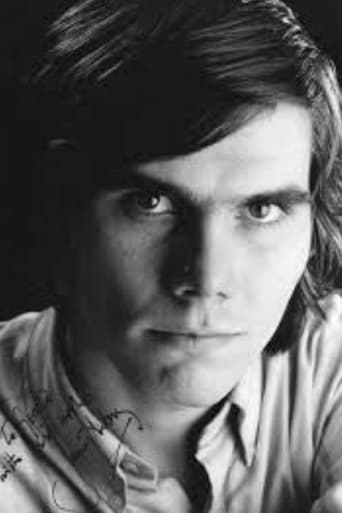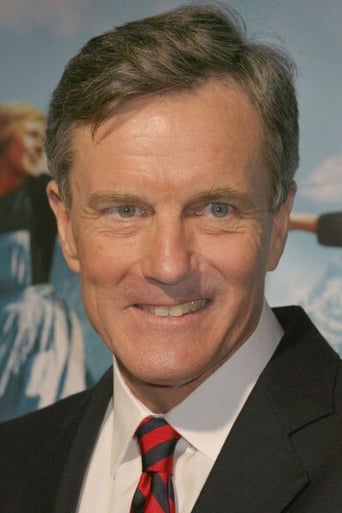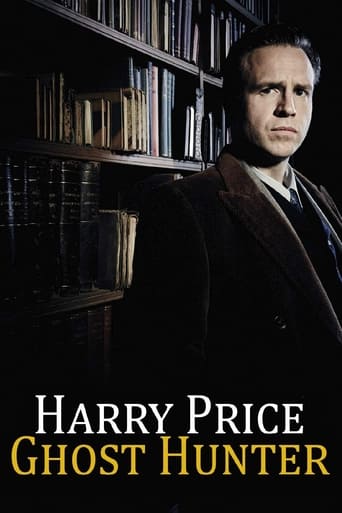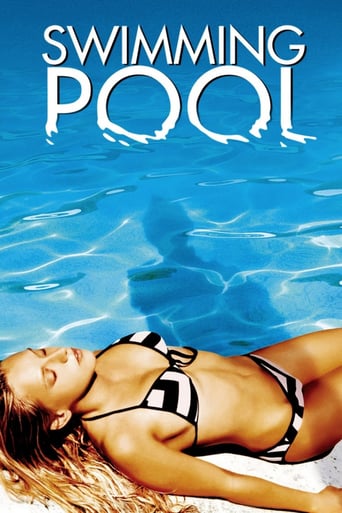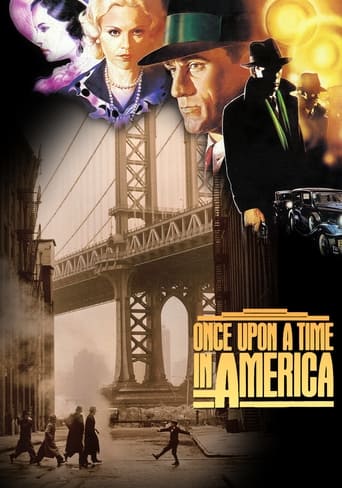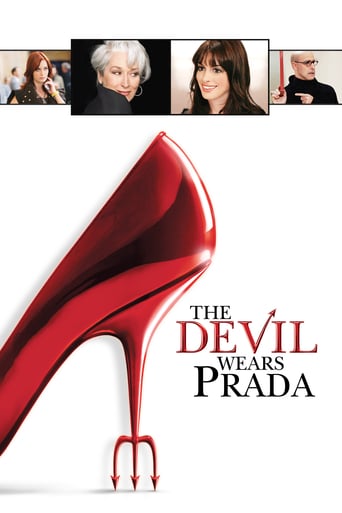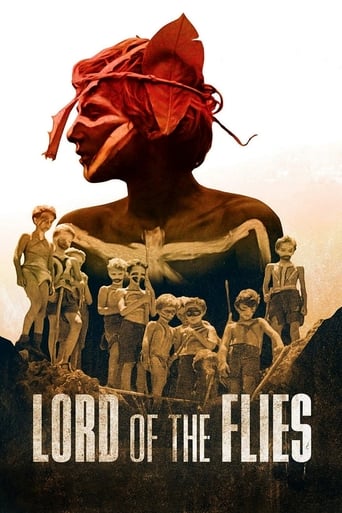
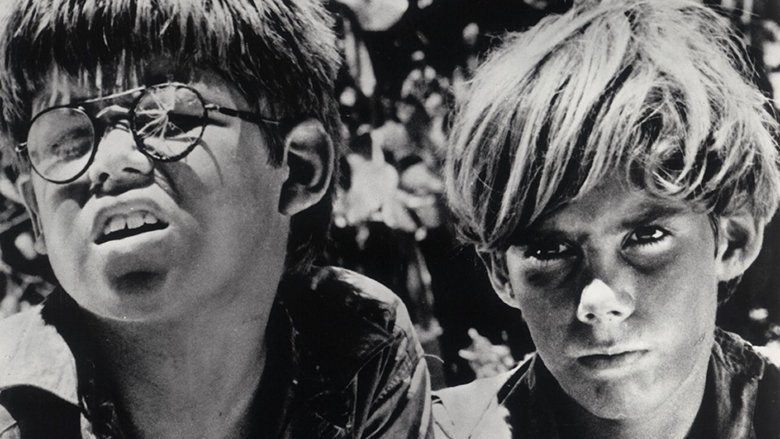
Lord of the Flies (1963)
Following a plane crash a group of schoolboys find themselves on a deserted island. They appoint a leader and attempt to create an organized society for the sake of their survival. Democracy and order soon begin to crumble when a breakaway faction regresses to savagery with horrifying consequences.
Watch Trailer
Cast
Similar titles
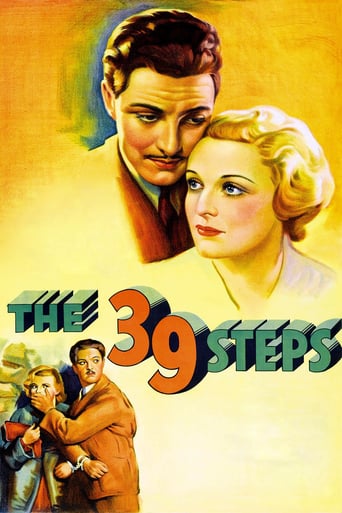


Reviews
Best movie of this year hands down!
A Disappointing Continuation
Great movie. Not sure what people expected but I found it highly entertaining.
It's the kind of movie you'll want to see a second time with someone who hasn't seen it yet, to remember what it was like to watch it for the first time.
After reading the book and watching the 1990 version of Lord of the Flies, I watched at last the original first black and white version of the film Lord of the Flies. The story interested me from the beginning, I thought it was fascinating and scary. This film has good pace, some wonderful black and white frames and it follows strictly the line of the book. The basic principle of civilization is being destroyed when an airplane crashes in a remote island and when the children in it take total control of their existence and survival. This film is a character study, which with clever details it helps us understand the different psychological situations of every child's mind. For example, we see Piggy wears his clothes until the end of the film, until the minute he dies. He is one of the most peaceful and logical characters in the island, and also he never becomes violent or savage. We see also, kids which are naked or painted in the face and body, signs of a more rapid evolution in disorder and disobedience.
A group of young English schoolboys are marooned on a South Pacific island after a plane crash. There's a war going on. Ralph encounters an asthmatic bespectacled Piggy. They find a conch and start blowing. The other kids gather. Jack leads a group of choir boys. The boys vote and elect Ralph leader. Ralph makes a rule that only the boy with the conch can speak. One of the younger boys claims to see a snakelike beast. Piggy uses his glasses to start a fire. Jack has a knife and the choir boys with newly made wooden spears kill a pig. Meanwhile a plane flies overhead but Jack's group had let the fire die out. Ralph and Jack conflict. The children begin to fear a beast that comes out of the sea and Jack vows to hunt down the beast. Jack and Ralph lead the group into the jungle and find a pilot in a parachute. They all run away thinking that it's the beast. Jack belittles Ralph as a leader and starts his own tribe. After a hunt, Jack puts the pig's head on a spike as an offering to the beast and then raid Jack's camp for fire. Simon discovers the pilot and tries to explain the feared beast. The children mistake him for the beast and kill him. After Jack's group steal Piggy's glasses, Ralph's remaining group go to confront Jack. Jack's cruel second-in-command Roger pushes over a boulder and kills Piggy. Ralph goes into hiding and Jack tries to hunt him down.The use of unknown young boys to play the boys give it a feel of faux realism. The boys are very naturalistic. The use of such young boys heightens the fear. James Aubrey has an inner intelligence that shines through as Ralph. Hugh Edwards is a great Piggy. Tom Chapin is not quite threatening enough as Jack. The black and white puts the movie in a stark world. It does justice to the words on the page.
I was not a fan of this novel. I want to start by saying that. The story goes that a bunch of British schoolboys are flying out of the UK during wartime, when their plane crashes on a deserted island. The young boys must survive on their own, developing rules and systems to keep themselves going. But as time goes on, religious like beasts are created within some of the boys minds, and the ideas spread quickly. One boy starts his own, individual tribe dedicated to hunting and killing the "beast" and many of the boys follow. These boys become savages and go against the remainder of the island. I don't like the story for many reasons, the main being that it seems too forced. The ideas are understandably a mirror to society and its culture, but done so in an unbelievable way. On top of that, this movie wasn't put together well. Bad acting across the board led to me constantly be taken out of the film. The cinematography was terrible in areas, but made up for it with some amazing and beautiful imagery.The film seemed to drag on for way too long in certain scenes. I just found so many things wrong with this film, and it was not one I would want to re-watch.Soundtrack: 8 Script: 4 Originality: 10 Cinematography: 5 Casting: 8 Acting: 3
Anyone coming to this probably knows how it starts, but the opening credits here do a great job of setting the stage. This is done with a sequence of still images: young boys in an English prep school, boys in a choir singing Kyrie Eleison, boys playing cricket, missiles, bombers, evacuation notices to the London airport, an atom bomb, a plane in the water. These images are inter-cut with a drumbeat soundtrack. No further back-story needed.Many serious themes are broached, the overarching one being to consider what would ensue if the thin veneer of civilization were stripped away. The ninety minutes of the movie follow Golding's book fairly closely and we get his take on the theme by following what happens to some thirty-odd kids on an isolated Pacific island. One of the boys, Ralph (James Aubrey), recognizes the need for organization and the need for a leader. A vote is taken and Ralph is elected, but another boy, Jack, is a rival. Jack, having been chief chorister at the school, gets all of the votes from the choirboys, but none others. Any relevance to contemporary politics is not coincidental. Initially things go all right, with tasks being apportioned: Jack will be in charge of hunting and keeping a fire going as a signal to any possible rescue ships. Ralph will oversee building huts and making executive decisions. Soon a power struggle develops between Ralph and Jack and Jack gets the upper hand, since he is the main provider of food.If you are so inclined, allegorical meanings abound, offering occasion for endless analysis and speculation. Segments of modern society are reflected in the personalities of the main characters: Ralph the reasoned leader representing civilization; Piggy, the intellectual, Ralph's friend and moral adviser; Simon the gentle, dispassionate truth seeker; Jack the militarist; Sam and Eric, the common man. The conclusion that savagery triumphs over good is depressing, but at least there is a recognition that there can be noble impulses embedded in our DNA. Jack makes a comment early on, "After all we're not savages. We're English and the English are best at everything." The irony of that statement is appreciated as the movie moves along.The origins of religion are shown to be rooted in fear, and used by the group in power to their advantage. The corpse of an airman is found and it is mistakenly taken to be a "beast" shrouded in mystery and feared. Jack, recognizing an opportunity, offers protection from the beast and sacrifices pig's heads to feed it to keep it at bay. Since young kids have the least exposure to civilizing influences (read restraints), the implication is that we are all part brute--unfettered ego and the will to power are what make most things go bad.If you are not inclined to allegory or deep meaning, then you can see this simply as an adventure showing what might happen to a bunch of school kids when set loose without authority. Their relationships become pretty much what they probably were in school: Jack, a closet bully; Ralph, a straight-up kid; Piggy, a fat intellectual who was picked on; Simon, a quiet thinker; Sam and Eric, congenial get along guys. They become who they truly are, which is scary to think about. I thought the child actors were quite good, especially for kids with little or no acting experience. They did not speak with great eloquence, they spoke as kids in a believable manner. Hugh Edwards makes a perfect Piggy. Aubrey plays the final scene with such emotion that it had a powerful impact on me; he communicates a sorrow bordering on despair. In that final scene he is made to look much older, which would indicate the effect his experiences on the island have had on him.Black and white is the right medium for this story, since it puts the focus on the kids and their faces. In color the kids would be overshadowed by the lush tropical island setting. The scene near the end where Ralph encounters the sailor is stunning in black and white. Panning up from the sailor's feet along the length of his brilliant white uniform is inspired. The spotless uniform offers a great contrast to the shape the kids were in.The score by Raymond Leppard is gently supportive while being mostly unobtrusive after the opening credits. The choir singing Kyrie Eleison as they march along the beach in their black robes will likely stick in your mind. Fragments of this song are repeated on several occasions throughout the movie. Leppard's score lets the tense drama unfold naturally without having to hit you over the head by what emotion you should be having. Many of the scenes play with no accompanying music; silence is used to great effect.Perhaps Walt Kelly's Pogo quote best sums up the takeaway: "We have met the enemy ... and he is us."
